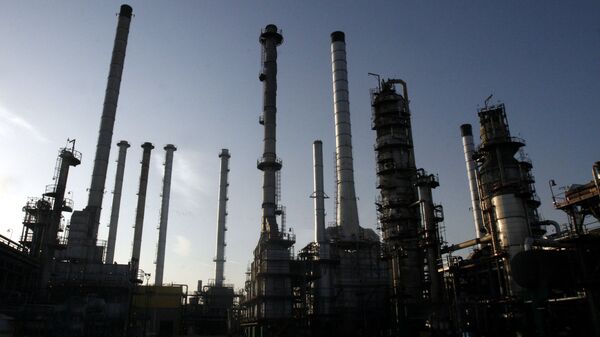On August 25, Iranian Foreign Minister Mohammad Javad Zarif said that Tehran is still waiting for the EU to take action on the sale of Iranian oil and preservation of cooperation with the country's banks as Brussels previously promised, the Iranian Students' News Agency (ISNA) reported.
READ MORE: State Dept Representative: Iran to Conduct More Assassinations Due to EU Funding
He also stood up in defense of the EU's decision to address financial assistance to Iran in the form of €18 million ($21 million), which was transferred to the Islamic Republic to help it cope with the recently re-imposed US sanctions.
"This is a package that will help both sides have communication with each other and it doesn't have anything to do with the nuclear agreement and other hype," the minister said.
Brussels plans to send some €50 million in financial help to Iran amid the US sanctions targeting Iran's economy. The help was met with criticism in Washington, with a top diplomat Brian Hook saying it was "the wrong message at the wrong time."
The re-imposed US sanctions will affect any company doing business with Tehran, putting European firms at risk, with some of them already having left the country. European leaders have blasted the secondary US sanctions and introduced a Blocking Statute in order to counter them. Several EU companies even tried to obtain a waiver from the US Treasury in order to avoid sanctions, but without success.
READ MORE: Tehran Refutes Claims That EU Economic Aid to Iran Meant to Offset US Sanctions
US President Donald Trump announced on May 8 that the US was withdrawing from the Joint Comprehensive Plan of Action (JCPOA), an international agreement reached in 2015 by Iran, the United States, Russia, France, China, the UK, Germany and the EU. The deal was designed to prevent Iran from acquiring nuclear weapons and to ensure the peaceful nature of its nuclear program, lifting economic sanctions against the country in return.


